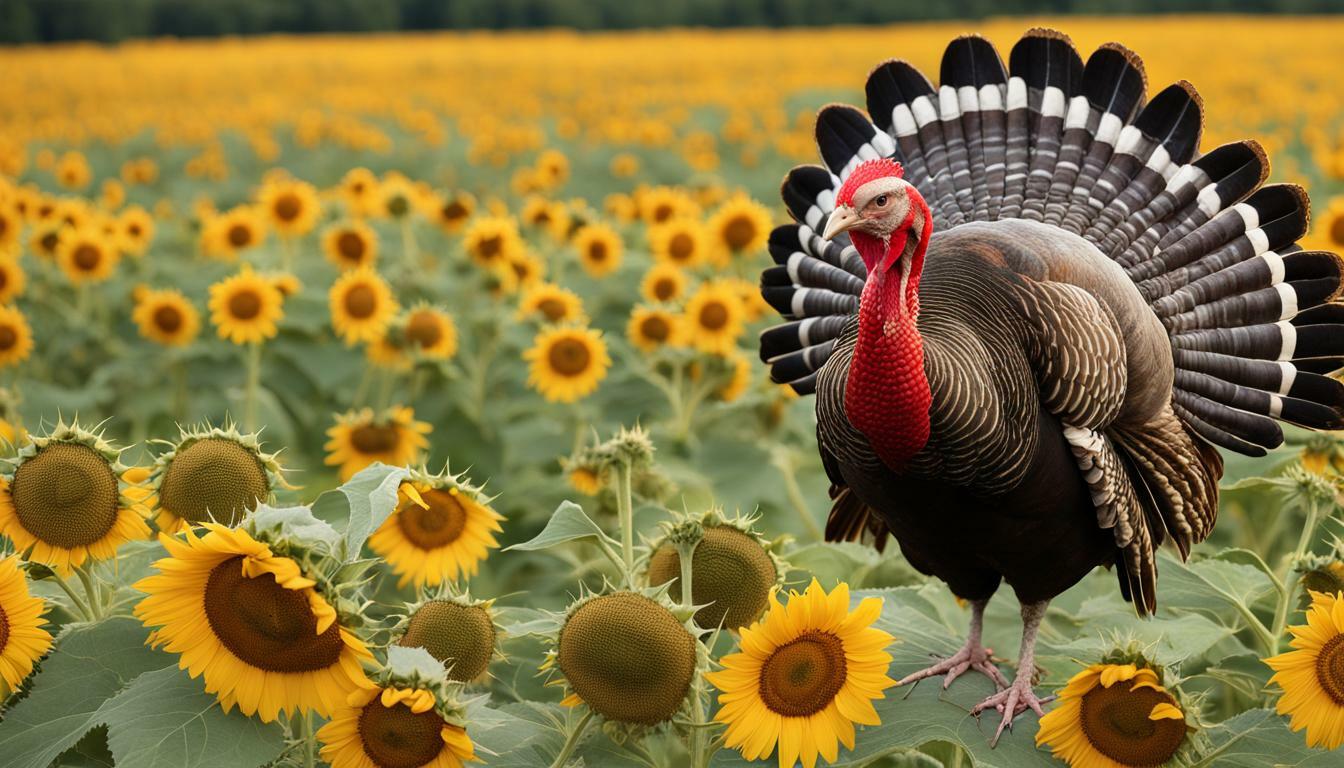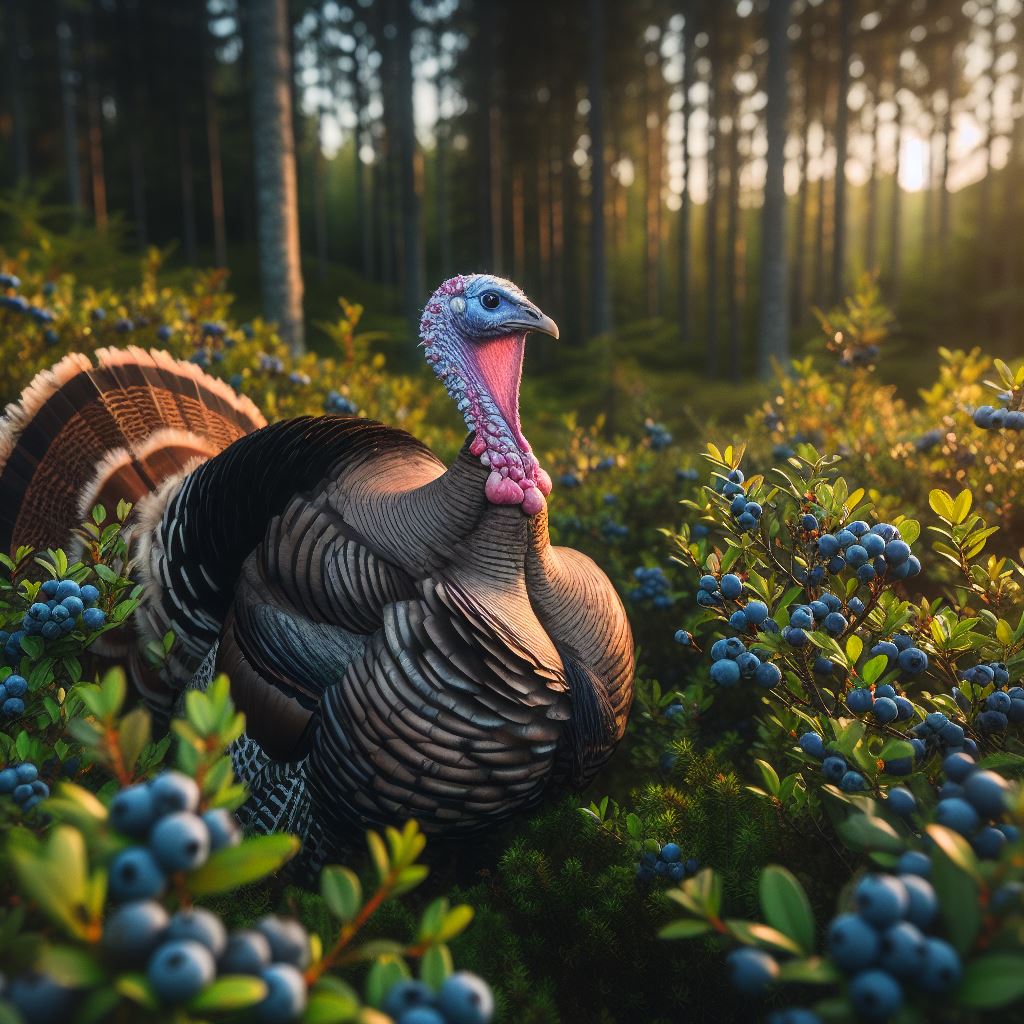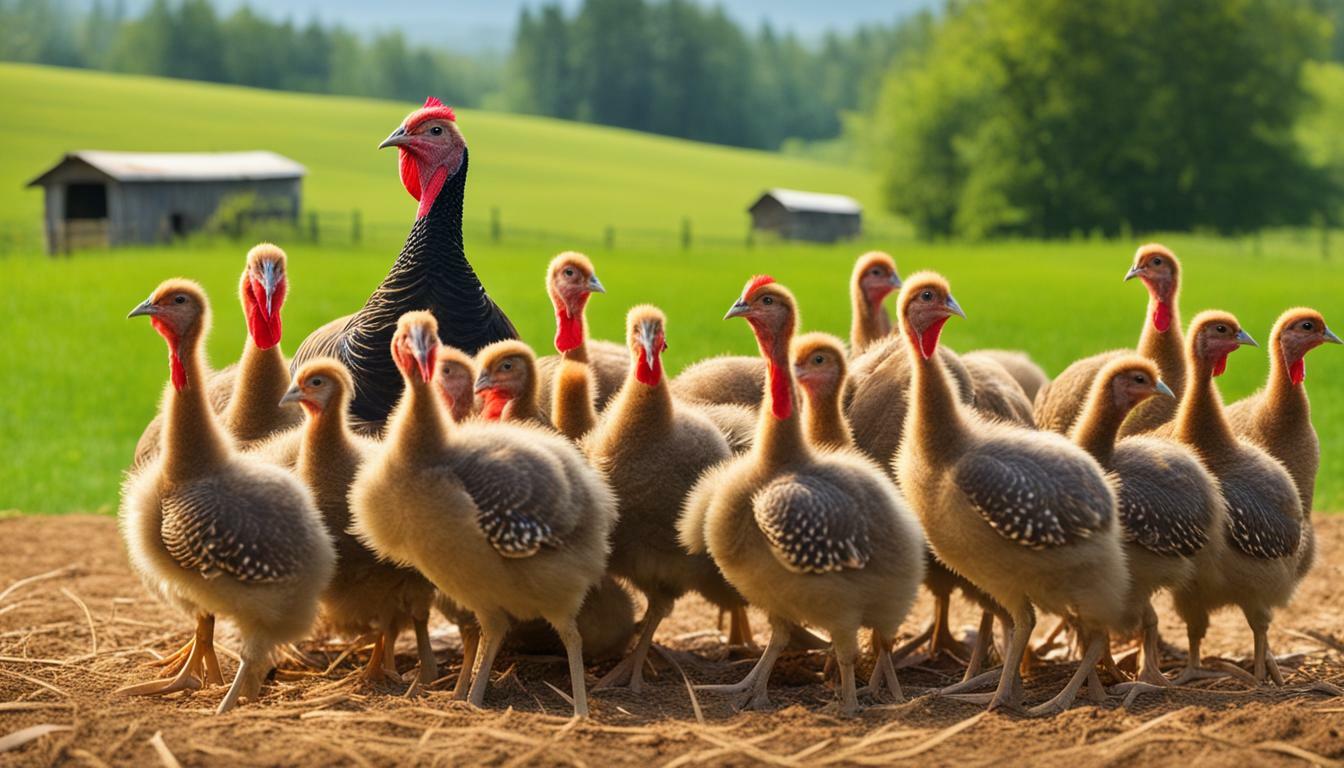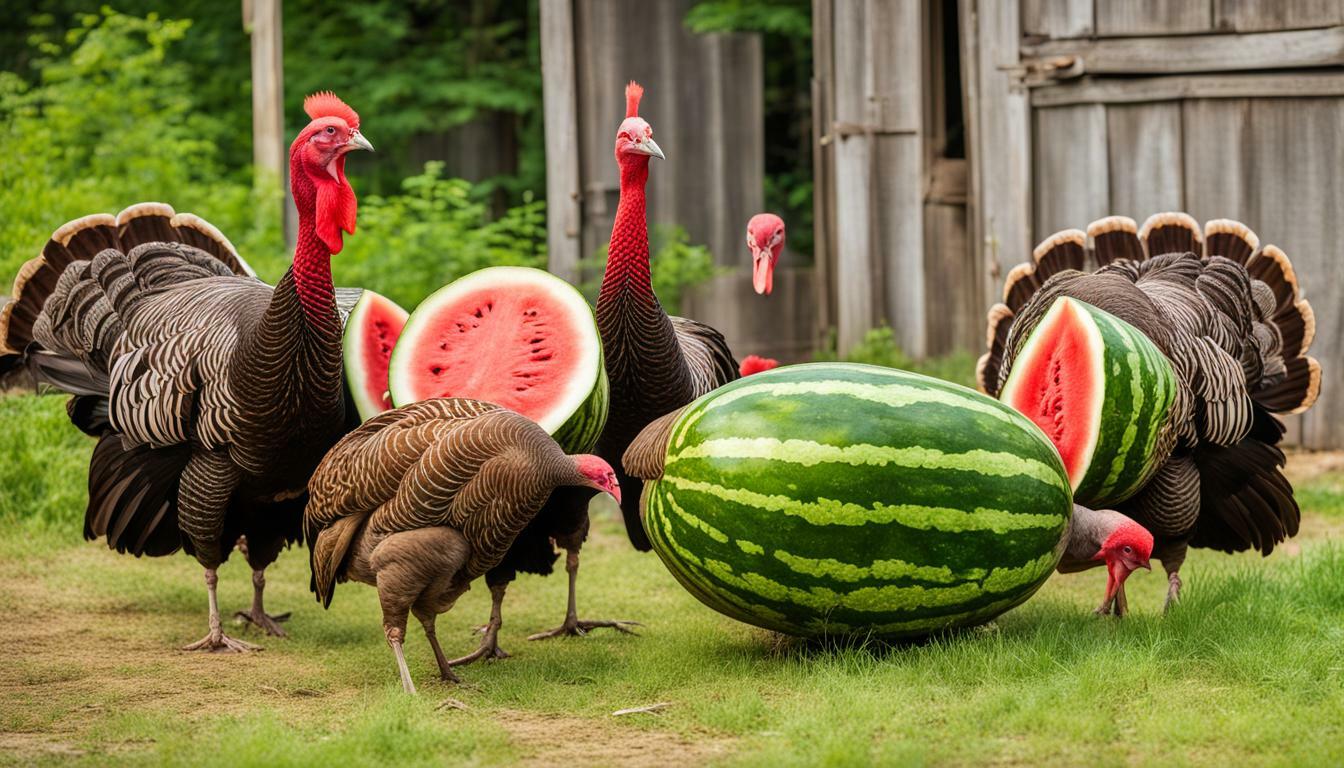Do Turkeys Eat Sunflower Seeds? Exploring Turkey Diets

Table of content:
- Turkeys Dietary Needs
- Are Sunflower Seeds Good for Turkeys?
- Do Wild Turkeys Consume Sunflower Seeds?
- What Can I Feed Pet Turkeys?
- Do Turkeys Like Eating Sunflower Seeds?
- Are Sunflower Seeds Safe For Turkeys?
- What Types of Sunflower Seeds Can Turkeys Eat?
- How Often Can I Offer Sunflower Seeds to Turkeys?
- What Are Good Snacks and Treats for Turkeys?
- Do Turkeys Prefer Other Seeds Over Sunflower Seeds?
- Final Thoughts
Turkeys are large birds that are a popular choice for small farms. Their unique appearance and behaviors make them fun to watch. If you have pet turkeys or are considering getting some, you likely have questions about what they can and should eat. One common query is whether turkeys eat sunflower seeds.
Turkeys Dietary Needs
Turkeys are omnivores, meaning they eat both plant and animal matter. Their diet should consist of:
- Grains – Corn, wheat, oats, etc. This should make up 60-70% of their diet.
- Protein – Insects, small invertebrates, eggs, and small vertebrates. About 20-25% of their food.
- Fruits and Vegetables – Berries, leafy greens, squash, etc. Around 10% of their intake.
- Calcium – Turkeys need extra calcium, especially laying hens. This can come from oyster shells or limestone.
- Grit – Crushed granite or another grit source helps turkeys grind and digest food.
- Clean Water – Fresh, clean water must be available at all times.
Turkeys enjoy variety in their diet. Offering different grains, produce, and protein sources keeps them healthy and engaged with their food.
Are Sunflower Seeds Good for Turkeys?
Sunflower seeds can make a healthy addition to a turkey’s diet. The seeds provide important nutrients:
- Protein – Sunflower seeds contain over 20% protein. This aids growth and egg production.
- Healthy Fats – The seeds have high levels of polyunsaturated fatty acids that are good for turkeys.
- Vitamin E – Sunflower seeds are high in vitamin E. This antioxidant boosts the immune system.
- B Vitamins – Sunflower seeds contain B vitamins like niacin, folate, and pantothenic acid.
- Minerals – The seeds provide minerals like magnesium, phosphorus, potassium, zinc, iron, and calcium.
- Fiber – Fiber aids digestion and keeps the digestive tract healthy.
In moderation, sunflower seeds give turkeys an energy and nutrition boost. The fat content helps turkeys stay warm in cold weather. Their small size makes them easy to eat.
Do Wild Turkeys Consume Sunflower Seeds?
Wild turkeys have a varied diet that consists of what they can find in nature. This includes:
- Acorns, chestnuts, hazelnuts, and other nuts and seeds.
- Insects and bugs like grasshoppers, spiders, ticks, and beetles.
- Berries and fruits like grapes, cherries, and blackberries.
- Leafy greens and green plants.
- Mushrooms and fungi.
- Grains from wheat, oats, corn, and grasses.
Wild turkeys will eat sunflower seeds if they come across them. Sunflowers grow naturally in some parts of the United States. The turkeys may snack on dropped seeds below mature sunflower plants. If a bird feeder has black oil sunflower seeds, wild turkeys may help themselves. However, sunflower seeds are not a major part of their natural diet.
What Can I Feed Pet Turkeys?
Domesticated turkeys can eat many of the same foods as wild turkeys. Good options include:
- Poultry feed or turkey starter – Commercially prepared feeds have balanced nutrition. Look for 20% protein feed.
- Whole or cracked corn – An inexpensive grain choice. Soak in water if feeding whole kernels.
- Oats and Wheat – Cooked oatmeal or wheat berries make good treats.
- Fruit and vegetables – Try chopped apples, grapes, lettuce, squash, peas, and melons.
- Leafy greens – Kale, chard, and cabbage leaves provide vitamins.
- Mealworms and earthworms – Excellent protein sources.
- Acutrim, oyster shell, or limestone – Provides calcium for strong eggshells.
Avoid caffeine, alcohol, chocolate, raw potato peels, onion, or avocado, as these can be toxic to turkeys.
Do Turkeys Like Eating Sunflower Seeds?
Turkeys enjoy eating sunflower seeds. The small size and thin shells make them easy to eat. Their high fat content makes the seeds taste appealing. The nutrients boost a turkey’s health and energy level.
You will often see turkeys eagerly eating sunflower seeds from bird feeders. They use their beaks to crack open the shell and access the seed inside. In captivity, turkeys will readily eat sunflower seeds you offer by hand or scatter on the ground.
The high fat content of sunflower seeds makes them something of a “junk food” snack for turkeys. While healthy in moderation, turkeys should not get most of their diet from these seeds. Use them more as periodic treats.
Are Sunflower Seeds Safe For Turkeys?
When fed properly, sunflower seeds are safe for turkeys to eat. Here are some tips for feeding them safely:
- Give seeds in moderation – No more than 1-2 tablespoons per bird per day for treats.
- Avoid moldy or rancid seeds – Discard any old seeds.
- Introduce new foods slowly – Mix with their regular diet at first.
- Crush shells – Especially for younger poults.
- Provide grit – Helps them grind and digest the seeds.
- Store properly – Keep seeds cool, dry, and in the bag.
Signs of trouble can include diarrhea, loss of appetite, or lethargy after eating seeds. Reduce or stop feeding if this occurs and contact a vet if symptoms persist.
With proper precautions, sunflower seeds can be part of a nutritious supplemental diet for turkeys. Their small size and thin shells make them a handy, nutritious treat.
What Types of Sunflower Seeds Can Turkeys Eat?
The two main varieties of sunflower seeds are black oil sunflower seeds and striped sunflower seeds. Both make good options for turkeys.
Black oil sunflower seeds are the most common type used for bird feeding. Their small size and thin shells are easy for turkeys to eat. They have very high fat and calorie content to fuel energy needs. Their small size also makes them suitable for younger poults.
Striped sunflower seeds are larger with a visible white stripe. They have a thicker hull that is harder to crack open. Their fat content is slightly lower than black oil seeds. Older turkeys have an easier time eating these. The thicker hull means they keep better in storage.
Other varieties like hulled, unhulled, or gray-striped seeds can also work. Avoid novelty flavors, seasoned seeds, or mixes with sugary fruits and nuts, as those do not meet a turkey’s nutritional needs.
No matter the type, introduce new sunflower seeds slowly. Look for plump, clean seeds free of damage, mold, or rancid odors. Store any excess in a cool, dry place.
How Often Can I Offer Sunflower Seeds to Turkeys?
Sunflower seeds should be an occasional treat rather than a daily diet staple for turkeys. Follow these guidelines for how often to feed them:
- Adult turkeys – 1-2 tablespoons per bird 2-3 times per week.
- Young poults – 1 tablespoon per poult 2-3 times per week.
- Laying hens – Up to 1 tablespoon per hen daily. The fat and nutrients support egg production.
- Male turkeys – Offer seeds 2-3 times per week except during breeding season. The fat content can reduce fertility.
- Outside of breeding season – Seeds can be offered more frequently to help turkeys maintain body heat.
- Hot summer months – Reduce frequency to avoid rancid seeds making birds sick.
Always introduce new treats gradually. Watch for signs of digestive upset or rejection of the seeds. Adjust frequency and portion sizes as needed to keep your turkeys healthy.
What Are Good Snacks and Treats for Turkeys?
In addition to sunflower seeds, turkeys enjoy many other natural snack foods. Some other tasty, nutritious treats include:
- Mealworms – High in protein and fun to peck at.
- Chopped fruits – Such as berries, melons, pineapple, peaches, grapes, and apples.
- Veggies – Try lettuce, cabbage, squash, peas, and corn.
- Cooked oatmeal – Sprinkle in seeds or fruits.
- Whole wheat bread – Tear into small pieces.
- Popcorn – Plain, air-popped popcorn makes a nice crunchy treat.
- Bird suet – High fat suets appeal to turkeys.
- Nuts – Chopped walnuts, almonds, peanuts, or other varieties.
- Crickets or grasshoppers – Provides natural foraging enrichment.
- Pumpkins or squash – Serve seeds and flesh carved into chunks.
Treats should make up no more than 10% of a turkey’s diet. Introduce new foods slowly and watch for any signs of digestive upset. Offer treats in bite-sized pieces for safety.
Do Turkeys Prefer Other Seeds Over Sunflower Seeds?
While sunflower seeds make a nice supplemental food, turkeys seem to enjoy a variety of seeds. Some other seeds to try include:
- Corn – An inexpensive staple. Cook before feeding kernels.
- Millet – Tiny, nutritious millet seeds are fun to peck at.
- Oats – Try dry oats or cooked oatmeal.
- Wheat – Offer cooked wheat berries, flakes, or shredded wheat.
- Safflower – Similar nutrition profile to sunflower seeds.
- Flaxseed – High in omega-3 fatty acids. Grind before feeding.
- Peas and beans – Can sprout these for fresh greens.
- Squash and melon seeds – Scoop out and roast seeds from fresh produce.
Mix seeds together in a treat blend. You can also hide or scatter them around your turkeys’ enclosure to provide natural foraging activity. Watch to see which seeds your turkeys seem to like best.
Final Thoughts
Turkeys are inquisitive, intelligent birds that thrive on a varied diet. Sunflower seeds offer a compact nutritional boost that appeals to a turkey’s foraging instincts. In moderation, the seeds provide protein, healthy fats, and important vitamins and minerals. While not a complete diet on their own, sunflower seeds can complement a balanced diet for healthy, happy turkeys. Offer them as an occasional treat alongside adequate commercial feed, fresh water, and opportunities for natural grazing.
Welcome. I’m Adreena Shanum, the proud owner of this website, and I am incredibly passionate about animals, especially poultry. I founded adreenapets.com as a labor of love, stemming from my desire to share my knowledge and experiences with poultry enthusiasts worldwide.




